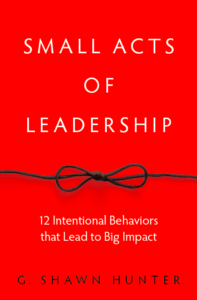Bring Back the Hang: Creating Meaningful Connections in an Unplanned World
One of my most enduring college memories is the hang time—hours and hours of unstructured, unobligated hanging out. Our dorms were designed as suites with six (was it seven?) rooms of doubles and singles around a shared lounge and bathroom space. In that lounge, we would play hours of spades, debate history or politics, party, argue over music taste, and even wrestle sometimes.
There was no agenda or invitation list. People came and went, and we invented activities on the spot. One fall day, we decided to throw a “roll in the leaves” party, moving bags and bags of colorful leaves into the lounge area and hallways in the dorm. Afterwards, we had crickets hiding in the dorm for weeks as we tried to clean up.
The essence of the hang is to keep the stakes low. Let everything unfold, speak your mind, share the space. Just be.
Sheila Liming, who teaches writing at Champlain College and recently published a book called Hanging Out: The Radical Power of Killing Time, observes that when she enters a classroom minutes before class, it is almost always silent, with most students looking at their phones. They are talking and interacting, just to other people—sharing moments, jokes, and small confessions with those they know and trust who aren’t in the room.
Whereas initiating a conversation with the person next to you is a bold act of vulnerability. Who knows how they will react? How will you start or end the conversation? It’s much safer to text a confidant privately.
This behavior results in the “displacement effect,” where time spent online displaces in-person interaction and exacerbates loneliness. Loneliness isn’t the only consequence, however. Emotionally, we are quicker to resent, cancel, and block someone online, but not in person. In person, when someone annoys or angers us, we want resolution. We want to convey our feelings and hopefully reach an understanding. But virtually, we can simply turn them off, more easily moving to feelings of contempt.
Sheila Liming defines hanging out as “daring to do not much and daring to do it in the company of other people.” Another way to think of this is spending time with others without imposing too many expectations on what that time should achieve or produce.
A corporate holiday party is not a good hang. Quasi-mandatory company events designed to bring people together and socialize might achieve that goal, but they lack the casualness of a genuine hang. The problem lies in the aesthetics. When we throw a “party” with a specific time, guest list, menu, and theme, we create expectations of vibe, decor, and dress, prompting questions like, “Am I wearing the right thing, saying the right thing? Am I doing this right?”
A good hang does not have a prescribed agenda or set list of obligations. In these environments, social improvisation is the key. It can be challenging and scary, and we might feel out of control.
Dr. Liming often sees first-year students in her office during the initial weeks of school, distraught and upset because they feel unanchored and lost in this new world of college. Their high school friends are elsewhere, and their habits and rituals are disrupted. Suddenly, they are surrounded by unfamiliar people with lots of free time on their hands.
Whenever a new, bewildered first-year student enters her office with anxiety and impostor syndrome, contemplating going home, Dr. Liming has a similar experience coaching them through the change. She reassures them that it will get better, they will adjust, and they will find fun people and things to do. Nine times out of ten, that’s exactly what happens. A month later, they have new friends, are happy, excited.
But the key to working through that transition is sitting with that discomfort. The key is putting down the phone, and allowing the unscripted hangout to happen. In the vulnerable improvisation of the hang, we can find ourselves and each other.
________________________________________________
 Our company Mindscaling, is busy building powerful online micro-learning experiences to drive the human change that propels your team. You can find our catalog of high-impact courses here. And if you want something more tailored, you can learn about our custom work here.
Our company Mindscaling, is busy building powerful online micro-learning experiences to drive the human change that propels your team. You can find our catalog of high-impact courses here. And if you want something more tailored, you can learn about our custom work here.
My book Small Acts of Leadership, is a Washington Post bestseller! You can grab a copy here. And if you want to learn to apply some of these ideas and be an effective coach for your team, we wrote a course on that too. It’s called Coaching for Managers available over at UDEMY for Business.



